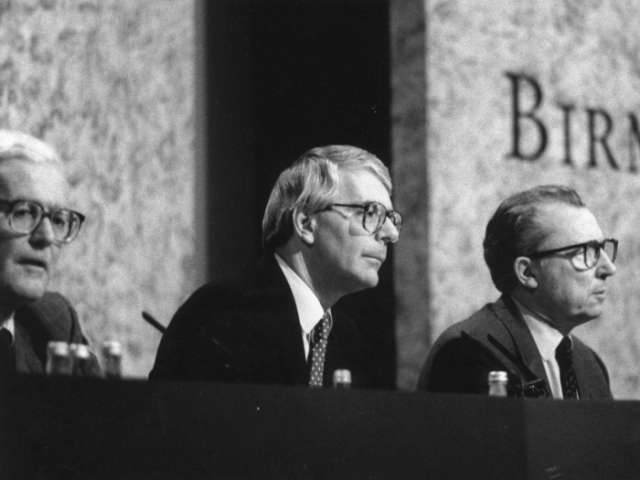While it is not unusual for the Government to withhold some files in its biannual disclosures, critics have raised eyebrows over the decision to withhold documents on European policy at a critical juncture in Britain’s exit from the EU.
In a matter of weeks Theresa May will embark on the second phase of the Brexit negotiations in Brussels, in which Britain’s future relationship with the bloc will be hammered out along with any future trade deal.
Vince Cable, the Liberal Democrat leader and former coalition cabinet minister, told The Independent: “The Conservatives have form on unnecessarily holding back documents related to Europe so that they avoid public scrutiny.
“This looks suspicious, as if they are trying to hide information that could be embarrassing during the Brexit negotiations.”
And Labour’s Jon Trickett, the shadow Cabinet Office minister, added that citizens are entitled to expect high levels of transparency from government. “This Government has abysmally failed in this duty,” he said.
He added: “Earlier this week, it was revealed that a thousand important files had been ‘lost’ by the Government. People will be entitled to ask why the Government is refusing to release significant dossiers from our recent history, some of which are of critical importance in connection with the EU.
“This seems to be a pattern of obfuscation from this Government, with vital information that could be key to our understanding of the current political situation being concealed from our citizens.”
But a Cabinet Office spokesman denied files were being deliberately withheld to prevent media scrutiny. “We have to ensure all files are properly reviewed and prepared before they are transferred, so that they do not harm national security or our relations with other countries or disclose the sensitive personal data of living individuals,” the spokesman said.
In a letter to the National Archives, the Cabinet Office added: “The Government takes its responsibility for transparency very seriously. We have worked with the National Archives to improve the system for releasing records as we make the transition from the 30-year rule to the 20-year rule.
“We now release more records, more frequently than ever before and a record 800+ files have been put into the public domain over the two releases in July and December.
“The number of temporary retentions is lower than in recent years and we continue to seek to ensure this number is kept to a minimum. In 2015 we retained or closed 24 per cent of files from the Prime Minister’s office, in 2016 this dropped to 15 per cent, and this year it will be around 10 per cent, demonstrating our commitment to bringing down the number of retentions year on year.”
In all, around 100 of the 490 files scheduled for release from the Prime Minister’s office this month have been retained by the Government. Under current rules confidential papers are expected to be released to the public after 20 years.
Other withheld files include dossiers on the marriages of the Prince of Wales and the Duke of York, the Lockerbie bombing, the Scott arms-to-Iraq inquiry, and the basing of US cruise missiles in the UK.
In one document the then-Prime Minister Margaret Thatcher was warned against inviting the former US President Richard Nixon to Downing Street. Diplomats said the White House would be “unhelpfully” surprised if she agreed to receive him.
The warning came in April 1980 – six years after Mr Nixon’s resignation over the Watergate scandal – when Tory MP Jonathan Aitken contacted No 10 on his behalf asking if she would see him during a forthcoming visit to London.
More about: #Nationalarchives
















































